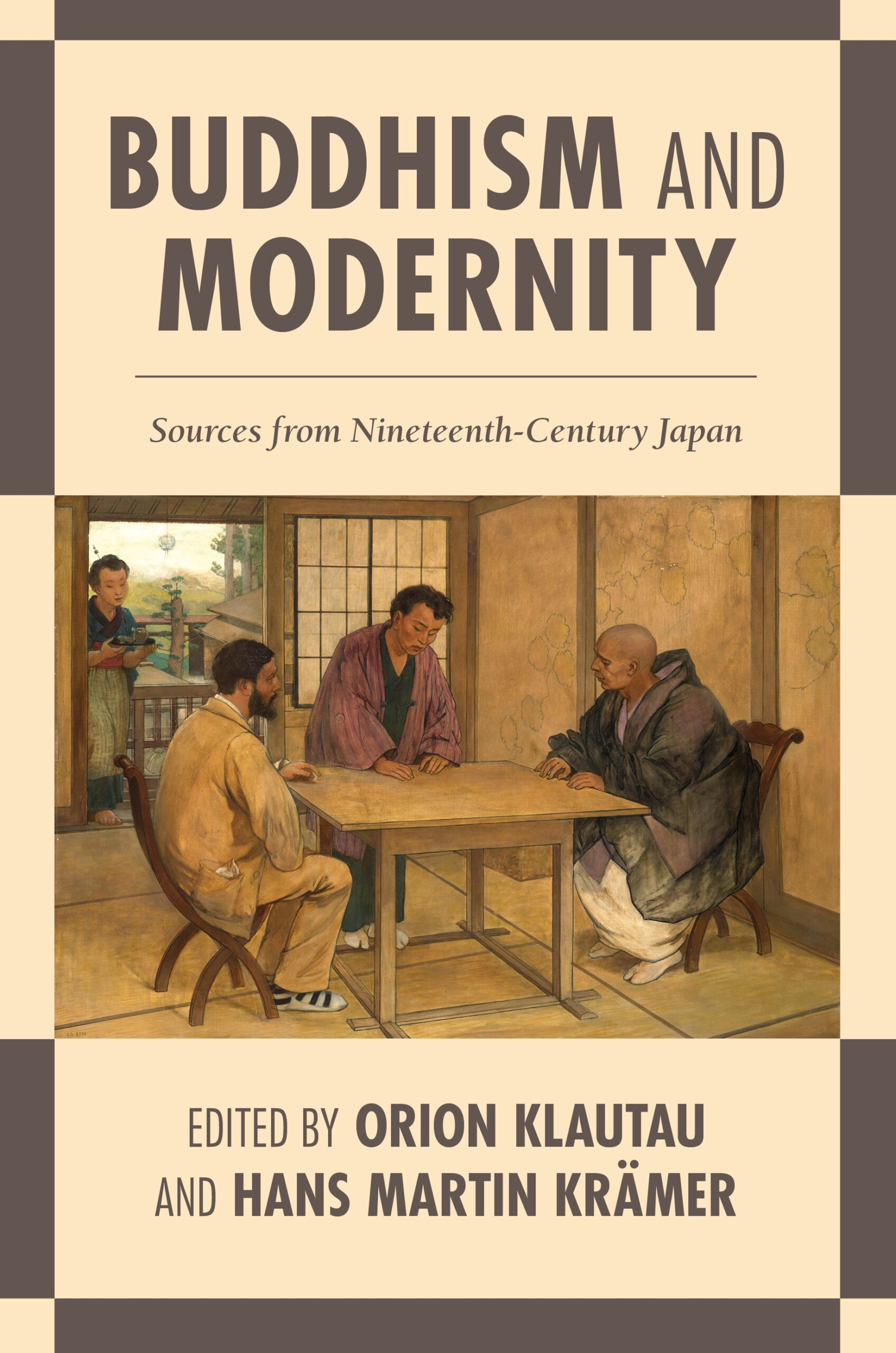Buddhism and Modernity: Sources from Nineteenth-Century Japan
- About the Book
-
Japan was the first Asian nation to face the full impact of modernity. Like the rest of Japanese society, Buddhist institutions, individuals, and thought were drawn into the dynamics of confronting the modern age. Japanese Buddhism had to face multiple challenges, but it also contributed to modern Japanese society in numerous ways. Buddhism and Modernity: Sources from Nineteenth-Century Japan makes accessible the voices of Japanese Buddhists during the early phase of high modernity.
The volume offers original translations of key texts—many available for the first time in English—by central actors in Japan’s transition to the modern era, including the works of Inoue Enryō, Gesshō, Hara Tanzan, Shimaji Mokurai, Kiyozawa Manshi, Murakami Senshō, Tanaka Chigaku, and Shaku Sōen. All of these writers are well recognized by Buddhist studies scholars and Japanese historians but have drawn little attention elsewhere; this stands in marked contrast to the reception of Japanese Buddhism since D. T. Suzuki, the towering figure of Japanese Zen in the first half of the twentieth century. The present book fills the chronological gap between the premodern era and the twentieth century by focusing on the crucial transition period of the nineteenth century.
Issues central to the interaction of Japanese Buddhism with modernity inform the five major parts of the work: sectarian reform, the nation, science and philosophy, social reform, and Japan and Asia. Throughout the chapters, the globally entangled dimension—both in relation to the West, especially the direct and indirect impact of Christianity, and to Buddhist Asia—is of great importance. The Introduction emphasizes not only how Japanese Buddhism was part of a broader, globally shared reaction of religions to the specific challenges of modernity, but also goes into great detail in laying out the specifics of the Japanese case.
- About the Author(s)
-
Orion Klautau, Editor
Orion Klautau is associate professor of Japanese studies at the Graduate School of International Cultural Studies, Tohoku University.Hans Martin Krämer, Editor
Hans Martin Krämer is professor of Japanese studies at the Center for Asian and Transcultural Studies, Heidelberg University.
Contributors
- Micah Auerback
- James Baskind
- Nathaniel Gallant
- G. Clinton Godart
- Seiji Hoshino
- Mami Iwata
- Jason Ananda Josephson Storm
- Mitsuhiro Kameyama
- Stephan Kigensan Licha
- Michel Mohr
- Fabio Rambelli
- Erik Schicketanz
- Jeff Schroeder
- James Mark Shields
- Jacqueline I. Stone
- Jolyon Baraka Thomas
- Dylan Toda
- Ryan Ward
- Garrett L. Washington
- Reviews and Endorsements
-
- Buddhism and Modernity is a snapshot of influential Buddhist voices during the nineteenth century, but also offers analysis from leading English-language scholars of Japanese religion in the twenty-first century. . . . It is argued that translated works should be valued much more in academia than they currently are. I certainly agree with that argument, as translations unlock primary sources for the wider scholarly community. I would also extend the argument to include periodically returning to primary sources with a modern, more critical eye—another of this book’s contributions to the field.
—Chad Kohalyk, Books on Asia - Buddhism and Modernity is an excellent source book that offers translations of texts written by twenty-two Japanese Buddhists and organizations in the nineteenth century who actively engaged with the issues of modernity. . . . These original translations were translated by a team of twenty-one international scholars and experts in the field of Japanese Religions, many of whom have authored groundbreaking monographs on the Japanese Buddhists featured in this volume. Buddhism and Modernity is without a doubt, an extremely welcomed contribution to the growing field of modern Japanese Buddhism and the study of religion and modernity in general.
—Daigengna Duoer, University of California, Santa Barbara, Global Intellectual History, 8:2 (2023)
- Buddhism and Modernity is a snapshot of influential Buddhist voices during the nineteenth century, but also offers analysis from leading English-language scholars of Japanese religion in the twenty-first century. . . . It is argued that translated works should be valued much more in academia than they currently are. I certainly agree with that argument, as translations unlock primary sources for the wider scholarly community. I would also extend the argument to include periodically returning to primary sources with a modern, more critical eye—another of this book’s contributions to the field.
- Supporting Resources
-





